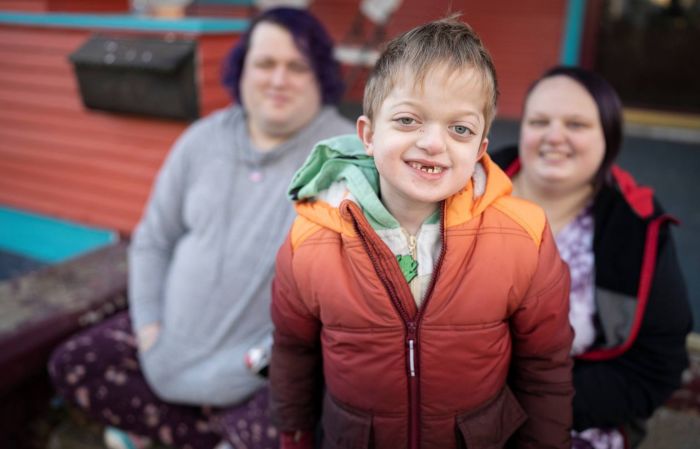A seizure can have many causes, and there are several signs to look for that might indicate your child is experiencing seizures. Whether caused by fever, brain trauma, or a long term condition such as epilepsy, the pediatric neurology experts at Gillette Children's are here to support your child, from their first seizure evaluation to continuing treatment and management of seizures and their root causes.
What is a seizure?
A seizure is an abnormal electrical discharge in the brain that disrupts normal behavior, activity, or movement.
There is constant electrical activity taking place in the human brain. When this electrical activity is disrupted, a seizure can result. Seizures in children can be mild and barely noticeable or severe, involving uncontrollable body movements or loss of consciousness.
What are the signs of seizures in children?
Signs that your child is having a seizure may include the following:
- A sudden change in behavior or alertness
- “Zoning out” or uncontrolled staring
- Repetitive jerking movements of the limbs or body that your child cannot control
- Loss of consciousness
- Changes in breathing pattern
After your child has a seizure, it is important that they be seen by a qualified pediatric neurologist. The neurologist will speak with your family and run tests to determine whether your child has epilepsy by evaluating whether your child's seizures are provoked or unprovoked.
Provoked seizures have a cause: low or high blood sugar, very high blood pressure, head injury, or infections can all cause a child to have a seizure.
Unprovoked seizures do not have a clear cause, and often need more evaluation to find the cause of the seizures.
My child had a seizure. Now what?
It is important to have your child seen by an expert in pediatric neurology following a seizure. Gillette Children's offers a First Seizure Evaluation, staffed by pediatric neurology experts to help you navigate the necessary steps that follow a seizure. At the First Seizure Evaluation clinic, you will have a chance to discuss:
- The type, cause and risk of additional seizures
- Seizures and what precautions will help ensure your child’s safety during a seizure
- How to recognize and monitor seizures
- When and how to use rescue medicines
If your child is very young or has complex medical or developmental conditions, a neurology evaluation, such as an electroencephalogram (EEG), will be done.
Depending on the evaluation and the findings, the Gillette team will work with your family to develop an individualized treatment plan to address the type and causes of your child’s seizures.
Gillette Children's is a Level 3 Epilepsy Center
At Gillette Children’s, a Level 3 Epilepsy Center, our specialists evaluate children—from infants to teens—who experience an unprovoked or prolonged seizure.
Gillette’s Level 3 Epilepsy Center designation from the National Association of Epilepsy Centers means that we provide a comprehensive team approach to the diagnosis and treatment of epilepsy. Level 3 Epilepsy Centers go through a vigorous vetting process to ensure individuals with seizures or epilepsy can get the specialized care they need.
As a Level 3 Center, Gillette Children's provides care such as neurodiagnostic evaluations, as well as medical, neuropsychological, and psychosocial services, noninvasive evaluation for epilepsy surgery, straightforward respective epilepsy surgery, and implantation of nerve stimulation devices to help control seizure activity.
 Home Page
Home Page

